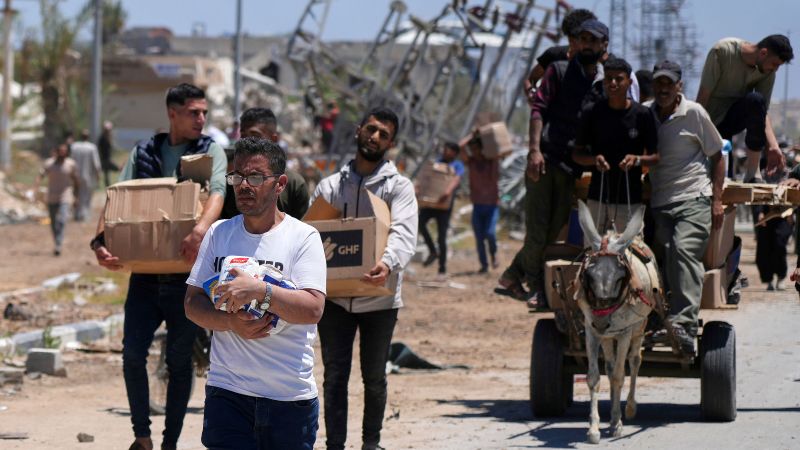In the backdrop of an intensifying humanitarian crisis in Gaza, the Boston Consulting Group (BCG), a prominent US consulting firm, has announced the termination of its contract with the controversial Gaza Humanitarian Foundation (GHF). This organization, which has received backing from both the United States and Israel, has been tasked with distributing food and essential supplies amid worsening famine conditions in the conflict-stricken region. A spokesperson from BCG confirmed the cancellation, outlining that several factors contributed to this decision, including a lack of support from multilateral stakeholders for the initiatives related to Gaza.
According to statements made by BCG’s representative, any work conducted beyond the initially approved scope was halted on May 30 due to insufficient buy-in from key stakeholders. It was emphasized that the consultancy firm would not receive any compensation for this unapproved work. Furthermore, a partnership within BCG, who was managing the Gaza operations, has been placed on administrative leave while a thorough review of the firm’s involvement and actions is conducted.
The timing of this announcement is particularly significant as it coincides with severe violence in Gaza, where nearly 30 Palestinians lost their lives and many more were injured due to military actions associated with aid distribution efforts. This tragic event occurred just as the GHF was operating near an aid distribution site in southern Gaza, bringing to light the alarming risks faced by civilians amid military operations. The Palestinian Ministry of Health and Nasser Hospital reported on these fatalities, which have sparked outrage and renewed discussions regarding the organization’s effectiveness and safety measures in their operations.
The Israeli military’s actions were clarified in their statement, indicating that forces opened fire multiple times in response to perceived threats from suspects deviating from designated routes. The Israel Defense Forces (IDF) further detailed that warning shots were fired before additional rounds were directed toward those who continued to approach the troops, leading to heightened tensions surrounding the GHF’s operations.
These deadly skirmishes have fueled increasing unease among observers and humanitarian organizations, including the United Nations, which have criticized the GHF’s operational strategies. There are concerns that the way the organization conducts its aid delivery could put civilians at greater risk and lead to further displacement of Palestinian individuals. The GHF’s plan, which is purportedly designed to mitigate the risk of Hamas appropriating aid, has received approval from both Israel and the US, reflecting a complex interplay of international interests in the region.
In the aftermath of BCG’s withdrawal, questions arose regarding potential influences on their decision linked to media scrutiny. A senior official from the Trump administration insinuated that the firm’s decision might be reflective of the contentious coverage surrounding the Gaza situation, although no concrete evidence substantiates this claim. Notably, the turbulent circumstances surrounding the organization were further compounded by the recent resignation of GHF Executive Director Jake Wood, indicating a period of instability and transformation within the foundation.
BCG initially partnered with GHF in October 2024 with the intention of supporting its establishment and operational frameworks to aid humanitarian efforts in Gaza. Despite losing its consulting partner, GHF remains resolute in its mission, asserting that it will continue its operations vigorously. Interim director John Acree stated they had successfully delivered over 7 million meals in just eight days, highlighting the foundation’s commitment to addressing the pressing needs of the local population. Acree underscored the challenges involved in delivering aid in such a tumultuous environment and asserted that GHF is uniquely positioned to provide safe and large-scale aid.
In summary, the decision by BCG to sever ties with the Gaza Humanitarian Foundation amid a backdrop of escalating violence and humanitarian necessity raises significant questions about the effectiveness and safety of aid deliveries in conflict zones. The ongoing crises in Gaza, coupled with severe oversight issues and concerns about the implications of military actions, will likely necessitate increased scrutiny and dialogue on how best to provide humanitarian support in such complex and precarious settings.



